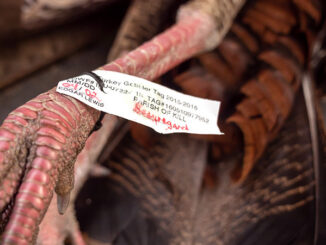
Uncertainty remains as to when sector separation actually will be implemented
More questions than answers remain in the wake of the Gulf of Mexico Fishery Management Council’s vote last month to approve Reef Fish Amendment 40, which basically divides the recreational red snapper quota between private fishermen and for-hire charter and head boat captains.
The actual quota for each side, the length of any potential recreational season as well as when the changes will actually be implemented have not yet been determined, according to council member and University of South Alabama marine sciences professor Dr. Bob Shipp.
“Those are great questions because none of the details on this thing have been worked out. The percentage breakdown for each of the sectors and how it’s going to be translated into days or pounds – none of those details have been worked out,” Shipp said. “I don’t think there’s any real chance that it’s going to be in force by 2015.
“Maybe so, but it’s one of those deals where the devil’s in the details, and all the unintended consequences are going to start showing up right now.”
Even though public sentiment was very much against Amendment 40, Shipp said he wasn’t surprised it passed, especially after a provision was added that will end sector separation in three years unless the council acts.
“The lobbying effort was really intense,” he said. “I think it would not have passed unless the sunset provision had been put in there. I know that for Alabama, the sentiment was to vote against sector separation, but when they agreed to put in that sunset provision to end it in three years, that’s what swayed a lot of people. But it was still a 10-7 vote, still very close.”
Part of the problem was that captains across the Gulf states who supported the amendment showed up in greater numbers for meetings than the general public did.
“The majority was very, very much against it, however the public didn’t show up at the meetings. That’s part of the problem,” Shipp said. “The guys who showed up at the meetings were the for-hire guys because it’s their livelihood, and it’s not the livelihood of private recreational fishermen.
“But the e-mails, the mail and all the other surveys indicated the public in general was very much against it. Now I have to say on both sides, the private recreational guys and the for-hire guys, nobody really fully understands how this is going to play out — and that includes me.”
How the roughly 5.5 million pounds allotted to recreationals will be split under the amendment remains unknown, Shipp said.
“There are so many different ideas that people have on how this thing’s going to play out,” he said. “The for-hire guys, so many of them think that each one of them individually is going to get a number of pounds, and that’s just not the way it’s going to work out.
“It looks to me like what they’re going to do is make the allocation and translate that into numbers of days, but we just don’t know how.”
Another unknown is the current revised version of the Magnuson Act making its way through Congress, and how it might ultimately impact state offshore boundaries.
“The House version of the Magnuson Act has the state boundaries going out to 9 miles for Mississippi, Alabama and Louisiana, which would match Florida and Texas,” Shipp said. “If that happens, the entire quota could easily be caught in state waters and there wouldn’t be any federal fishery at all.
“That’s just one more in this litany of uncertainties right now.”
As he said in the past, Shipp still believes pitting recreational fishermen against for-hire captains will be bad for both in the long run.
“I think it’s a lose-lose situation for both sides because the fundamental problem is not going to be solved with this,” Shipp said. “The fundamental problem has to be either total state control or something very, very different. As long as we’re operating under a quota system, there is no long-term solution.”


